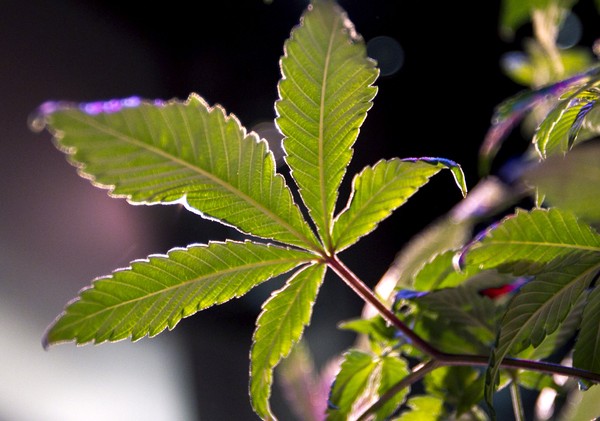BAY CITY, MI — It’s very likely the Bay City Commission approves an ordinance next month that regulates medical marijuana and allows them to start welcoming the industry to town.
That much is apparent based on the conversations in City Hall on Monday, Nov. 20, when the commission heard a presentation on the ordinance from the city’s community development department. The commission does an official first reading of the ordinance Dec. 4 and could vote to approve it as early as Dec. 18.
But the one question the commission needs to figure out is how many licenses they want to initially offer to growers and sellers of the prescription cannabis.
As written today, the ordinance limits Bay City to five Class A, B and C grower permits. The three growing classes allows cultivators to grow a set number of plants each year:
- Class A: Up to 500 plants
- Class B: Up to 1,000 plants
- Class C: Up to 1,500 plants
The ordinance also limits provisioning centers — also known as dispensaries — processors, secure transporters and safety compliance facilities to five licenses each.
Commissioner David Terrasi, 2nd Ward, said he felt the number of licenses was too low to keep up with demand for medical marijuana — especially for dispensaries.
“It makes no sense in doing something if you’re going to be lacking on the supply side when there’s a lot more demand out there — especially here in our city,” he said.
So, what is the demand for medical marijuana? Earlier this year, MLive data reporter Julie Mack crunched the numbers of medical marijuana cardholders county by county.
In Bay County, there are 2,327 medical marijuana cardholders, according to 2016 state data. Are five dispensaries enough to accommodate those people?
Perhaps, but Bay City’s elected officials will also have to take several other factors into consideration.
Number of cardholders
First, they need to look at the total amount of cardholders, including from neighboring counties. Residents in Buena Vista Township last week spoke in favor of opting in to the state’s Medical Marijuana Facilities Licensing Act. The more populated Saginaw Township and the city of Saginaw haven’t opted in.
In Saginaw County, there are 4,049 medical marijuana cardholders.
The city of Midland also hasn’t opted in. Midland County has 1,324 cardholders.
And then let’s add in Arenac (570 cardholders), Tuscola (1,928) and Huron (395) counties to the mix. Those three counties have a total of 2,893 cardholders.
Combine all six counties together, and you have more than 10,500 cardholders.
Number of dispensaries
Second, officials will need to look at how many dispensaries could operate in Bay County.
The Bangor Township board has made several amendments to its ordinance and now is issuing up to 15 licenses for provisioning centers. To date, 10 of those licenses have been spoken for, said Supervisor Glenn Rowley.
In Pinconning Township, they’ve maxed out their 10 available licenses for provisioning centers.
If Bay City maxes out five provisioning center licenses (and Bangor ultimately does the same), that’s a total of 30 dispensaries within about 30 miles.
Is that enough to cover the demand of the six counties listed above?
Recreational
Rowley, in Bangor Township, said his board has approved enough licenses to meet the demand that they feel confident is there. One thing to consider, he said, is that if and when recreational marijuana becomes legal, there will be even more demand.
“Municipalities need to think about how they’re setup knowing that could be coming,” he said.
A petition to legalize recreational marijuana in Michigan took a step forward on Monday when the Coalition to Regulate Marijuana Like Alcohol announced it was turning in 360,000 signatures to the Secretary State. The group needs 252,000 valid signatures in order to get the issue on the 2018 ballot.
The petition would legalize, regulate and tax recreational marijuana. Those over 21 could use marijuana, but would still be unable to consume it in a public place or drive under the influence.
At Monday’s meeting, Bay City Commissioner John Davidson, 6th Ward, said he felt the five license limit was a good start for the city. The commission could always amend the ordinance if they see more demand.
All license applicants have to pay a $5,000 nonrefundable fee to the city before they can setup shop. They then need to pass a background check and be approved by the state. If all Bay City licenses are maxed out, there could be $175,000 in annual revenue for the city. That’s on top of some state revenue sharing specifically tied to the medical marijuana industry.
Rowley acknowledges that not all dispensaries are going to be successful.
“It’s still a business,” he said. “Of course, we want to see them succeed, but the likelihood of everyone succeeding is not very strong.”
Bay City Commission President Andrew Niedzinski, 3rd Ward, agreed with Davidson, but said the city should sell as many dispensary licenses as it can in the first couple of years.
“Let’s definitely let the market decide this, but let’s do it in a way where we can get as many folks to buy those $5,000 licenses,” he said. “They’re not all going to succeed in business and we get to cash in.
“There are only a limited number of places those businesses could operate. We know there would be less licenses each year, but let’s get that money now, while letting the market decide.”
credit:mlive.com

